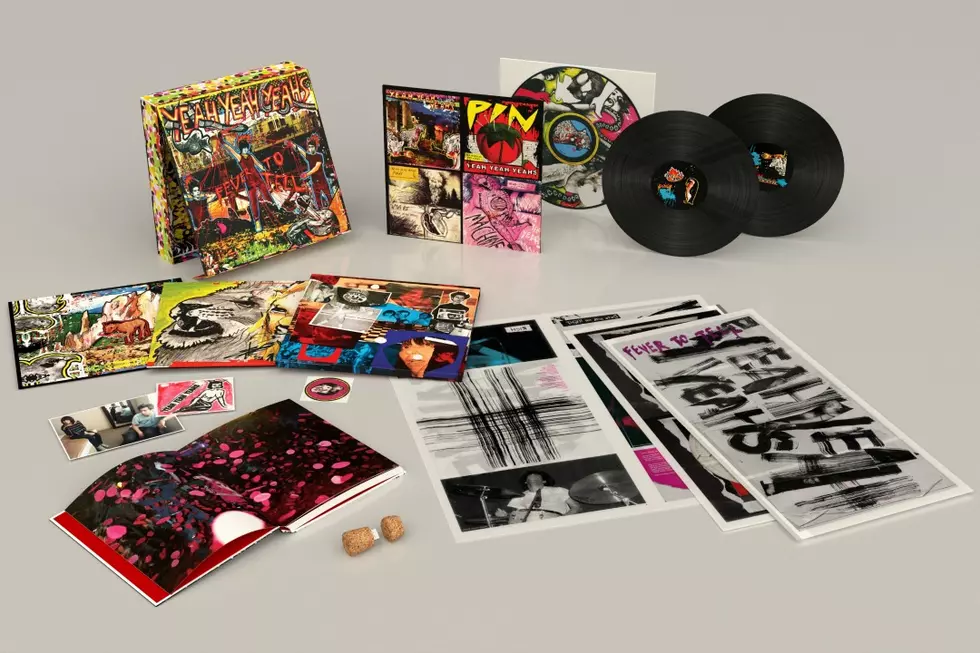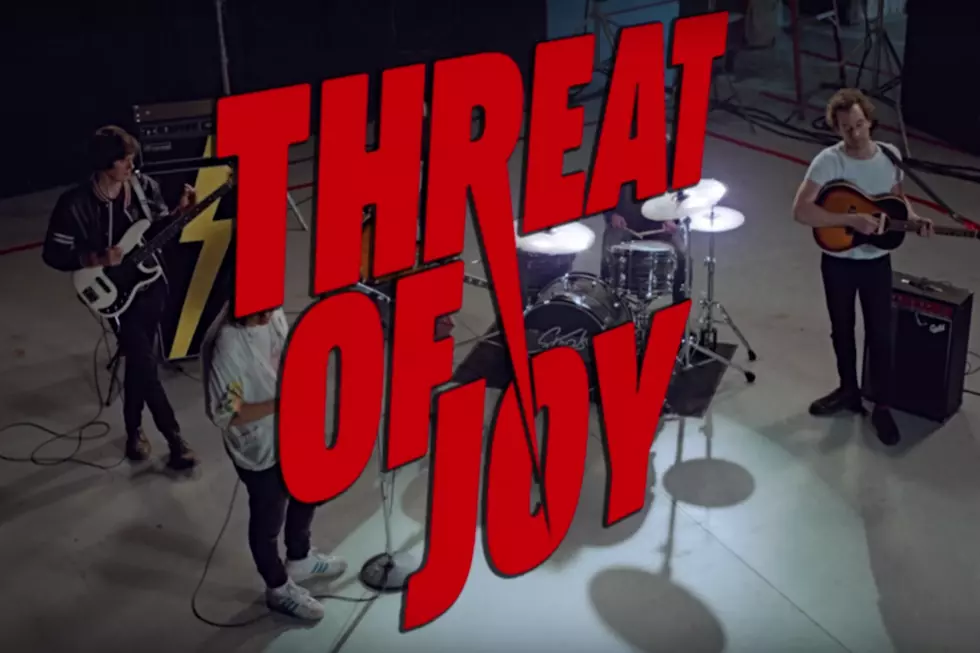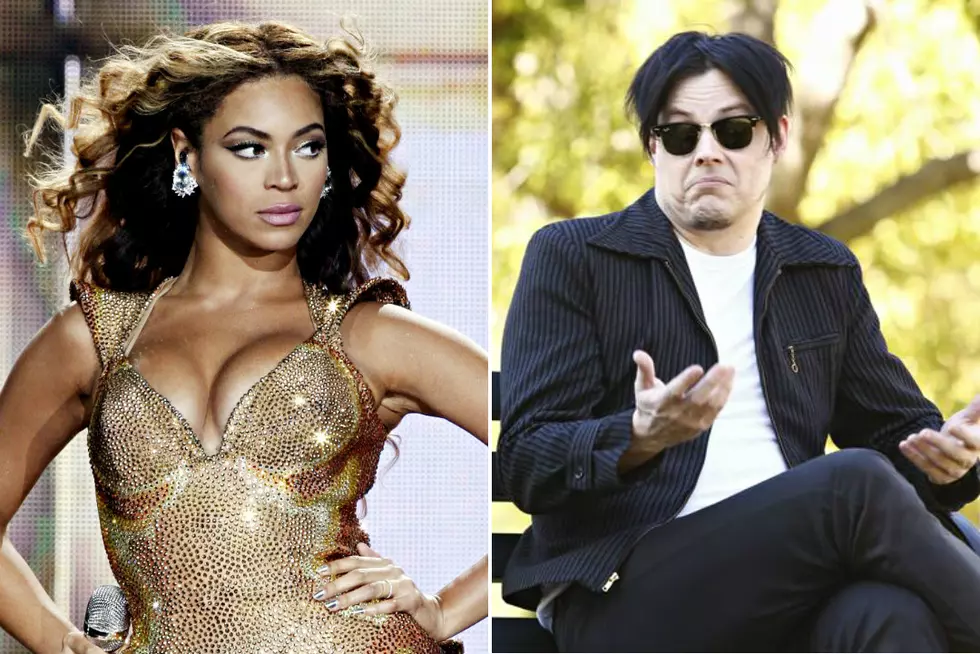
Julian Casablancas and Karen O Discuss Writing Lyrics, NYC and Band Rivalries
If there's such a thing as indie rock royalty, Julian Casablancas of the Strokes and Karen O of the Yeah Yeah Yeahs are the undisputed king and queen.
Both promoting their respective solo albums -- Casablancas just released the electronica-tinged departure 'Tyranny' under the name Julian Casablancas and the Voidz and Karen O's intimate 'Crush Songs' was released on Sept. 5 -- they sat down at a bar in their native New York City to interview each other for Time Out New York.
During the discussion, the pair -- whose bands both rose to fame in the city during the early '00s -- open up about everything from attempting to live up to expectations to the possibility of aliens among us.
Among the interview highlights: O confesses that writing lyrics is the hardest part of her job, to which Casablancas said:
The best thing that happens is that sometimes when you're playing a song, words form. And I think you have to be in a lyrical mode, and that's when the best things happen—when you're thinking about lyrics or writing lyrics, and you're in that headspace. And then you're just rehearsing a song or playing it in a studio, and that moment will happen when you're singing the melody and you say something that [translates] how you feel but it actually jibes with the melody. That's the thing: You can think of the best line that [translates] how you feel, but it might not emerge with your best melody. So usually it's while you're really playing the song that the best lyrical moments happen. But I also basically just write down most of the lyrics when I'm sitting randomly or walking down the street. Or someone will say a weird line, I'll hear it wrong, and it'll sound like some cryptic, deep thing, and I'll write it down so that when I go through music and there's part of a song where I don't have lyrics, I'll see what fits. It's a mixture of that kind of patchwork and what happens naturally.
O also said that she felt like the Yeah Yeah Yeahs existed in the shadow of the Strokes in the New York scene for many years and that she never used to connect with other singers.
Sometimes frontpeople don’t connect. It’s like when two magnets that are positively charged [repel each other]. Only in my thirties have I made a concerted effort to connect with other frontpeople, and it’s awesome, because I relate! I kind of wish I would’ve done that when I was younger and more insecure.
Casablancas also talked at length about New York City, and said that an influx of people to the city post-9/11 contributed to the growth of the NYC scene.
I think 9/11 did something. Two years after 9/11, the world kind of flocked [to New York], it seems. It was a horrific thing, but for some reason, I think the whole Brooklyn scene as it is now comes from the evolution of people migrating here post-9/11. [Gentrification] can happen, in some kind of utopian situation, if there's an understanding of the indirect causes of what it's a part of is creating. White people can have brunch all day, all the time, on every street if it doesn't indirectly contribute.… They're not evil-ly contributing to the problem, but they're part of the thing. So when it grows so exponentially inside this kind of prerevolution-Versailles bubble, it's offensive to me, and it annoys me. And it's a problem, and I think that people inside the bubble more than anyone should realize what's going on, and that's the only way that things can get better. It's a little annoying—all the banks, and all the cool old things having to leave because they can't afford the rent. But that's always happened throughout history. That's fine. I don't mind it in a vacuum, but it's part of a bigger problem. I think people are starting to understand that slowly, I think, so we'll see.
Read the interview in its entirety here.
Julian Casablancas and the Voidz -- 'Where No Eagles Fly' Official Video
More From Diffuser.fm









